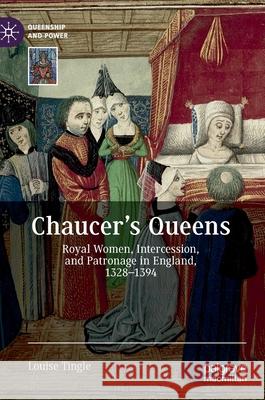Chaucer's Queens: Royal Women, Intercession, and Patronage in England, 1328-1394 » książka
topmenu
Chaucer's Queens: Royal Women, Intercession, and Patronage in England, 1328-1394
ISBN-13: 9783030632182 / Angielski / Twarda / 2021 / 239 str.
Chaucer's Queens: Royal Women, Intercession, and Patronage in England, 1328-1394
ISBN-13: 9783030632182 / Angielski / Twarda / 2021 / 239 str.
cena 441,75
(netto: 420,71 VAT: 5%)
Najniższa cena z 30 dni: 424,07
(netto: 420,71 VAT: 5%)
Najniższa cena z 30 dni: 424,07
Termin realizacji zamówienia:
ok. 22 dni roboczych
Dostawa w 2026 r.
ok. 22 dni roboczych
Dostawa w 2026 r.
Darmowa dostawa!
Kategorie BISAC:
Wydawca:
Palgrave MacMillan
Seria wydawnicza:
Język:
Angielski
ISBN-13:
9783030632182
Rok wydania:
2021
Wydanie:
2020
Numer serii:
000355589
Ilość stron:
239
Waga:
0.45 kg
Wymiary:
21.01 x 14.81 x 1.6
Oprawa:
Twarda
Wolumenów:
01
Dodatkowe informacje:
Wydanie ilustrowane











